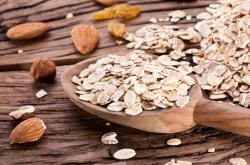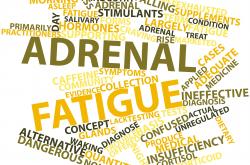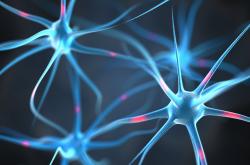Celiac Disease and Fatigue
If you’re at a loss to explain your fatigue, maybe it’s time to look at what you eat. It could just be that you have Celiac disease or some other sensitivity to a little protein known as gluten.
Perhaps one of the most underreported causes of fatigue in the developed world can best be understood by looking at the Western diet. In much of the Western world, there is a reliance on grain products, such as wheat-based foods. While that might seem normal to most people who have grown up accustomed to that dietary staple, the fact is that there is a large segment of the population that has difficulty managing these grains. Many of them have a condition called Celiac Disease, and one of the effects of that condition is fatigue.
What Is Celiac Disease?
Celiac disease has received some notoriety in recent years and has even sparked a dietary craze centered on gluten. Even many people who are not affected by this condition have subscribed to the notion of gluten-free diets, as the idea has been sold as a panacea for all manner of ills. In reality, there is only a certain subset of people for whom gluten is a real concern – either because they have an immune response to it or because they have some sort of lesser, but no less irritating, sensitivity to the substance.
Gluten is the protein that is found in wheat, rye, barley, and a number of other grains. While healthy people can tolerate this protein with no difficulty, patients suffering from Celiac disease cannot. In their bodies, the presence of gluten creates a terrible immune response that attacks the small intestine. Over time, that can lead to a reduction in the ability of the body to properly absorb nutrients.
No one yet knows what causes this condition, but there are ways to test for it, and treatments that can help those who suffer from it. If you’re a fatigue patient, it is wise to ensure that Celiac disease is not a contributing factor in your condition. If it is, then chances are that you need to modify your recovery plan so that you are treating the right ailment.
Symptoms of Celiac Disease
There are some common symptoms that generally indicate the presence of this disease. They include exhaustion, otherwise unexplained weight loss, bowel movement changes, general weakness in the body, and bloating or gas. Nausea can also occur in some patients. It is important to note that not every patient experiences the full range of symptoms. However, if you find that you experience any of them after consuming grain products, then it would be a good idea to consult with your physician to at least rule out this condition.
How Does Celiac Disease Make Your Tired?
Celiac disease has a number of effects on your body. As noted, it attacks the small intestine during its immune response to the grain protein known as gluten. It also, however, causes general weakness throughout the body, just as you would experience during the flu or during any allergic reaction. That happens as part of that immune response. In addition, it is often the case that undiagnosed gluten sensitivities can result in damage to the small intestine long before an actual diagnosis occurs. When that occurs, the body can have difficulty processing the nutrients you need to supply the cell’s mitochondria with fuel for conversion to energy.
In addition, Celiac diseases can also lead to other conditions such as malnutrition and anemia. Both of these conditions can leave you without the critical nutrients you need to power your body. The end result is less energy, less vitality, and greater levels of exhaustion. Worse, brain fog often accompanies all these ailments, and they can even result in insomnia. Obviously, fatigue is almost inevitable under those circumstances.
How Can You Treat The Condition?
The first step to treating this disease is to obtain a diagnosis. Blood tests can help to determine whether you have antibody indicators that reveal the presence of the condition. An endoscopy can help to determine the extent, if any, of damage that has been done to your intestines. Most doctors will also test for things like anemia and osteoporosis – two conditions that often follow Celiac disease, and which can indicate its presence.
Treatment for the condition then becomes a matter of organizing your priorities. Diet will be of paramount concern, of course, since you will want to eliminate every source of gluten you might be currently consuming. You’ll need to focus on a completely gluten-free diet, and preferably one that is packed with nutritionally-dense selections – especially if your small intestine has suffered damage.
Your fatigue will probably mandate extra rest to ensure that your body can recharge. You may even need naps throughout the day to meet your needs. Remember, Celiac disease is a serious condition, so be forgiving with yourself if you need more rest than you’re accustomed to getting. Don’t allow yourself to feel guilty about such pampering.
Supplement your nutrition if your diet fails to achieve positive results in short order. It could just be a problem with intestinal absorption of nutrients. Your doctor can help to devise an effective strategy in this area as well. Above all else, never lose hope. Once you know what the problem is, you’ll find that you’ve solved ninety percent of your problem. The rest is just a matter of time and a full commitment to the lifestyle changes needed to achieve recovery.
You might also be interested in:
- How You Can Cope with Fatigue Caused by Gluten. http://celiacdisease.about.com/od/CeliacNeuroSymptoms/a/Gluten-and-Fatigue.htm
- Celiac Disease - Topic Overview. http://www.webmd.com/digestive-disorders/celiac-disease/celiac-disease-topic-overview
- Celiac Disease. Symptoms. http://www.mayoclinic.org/diseases-conditions/celiac-disease/basics/symptoms/con-20030410
- Tips for dealing with fatigue caused by Celiac disease. http://tapgenes.com/dealing-with-fatigue-caused-by-celiac-disease/
- Learn about the symptoms of celiac disease. http://www.cureceliacdisease.org/living-with-celiac/guide/symptoms



















Leave a comment